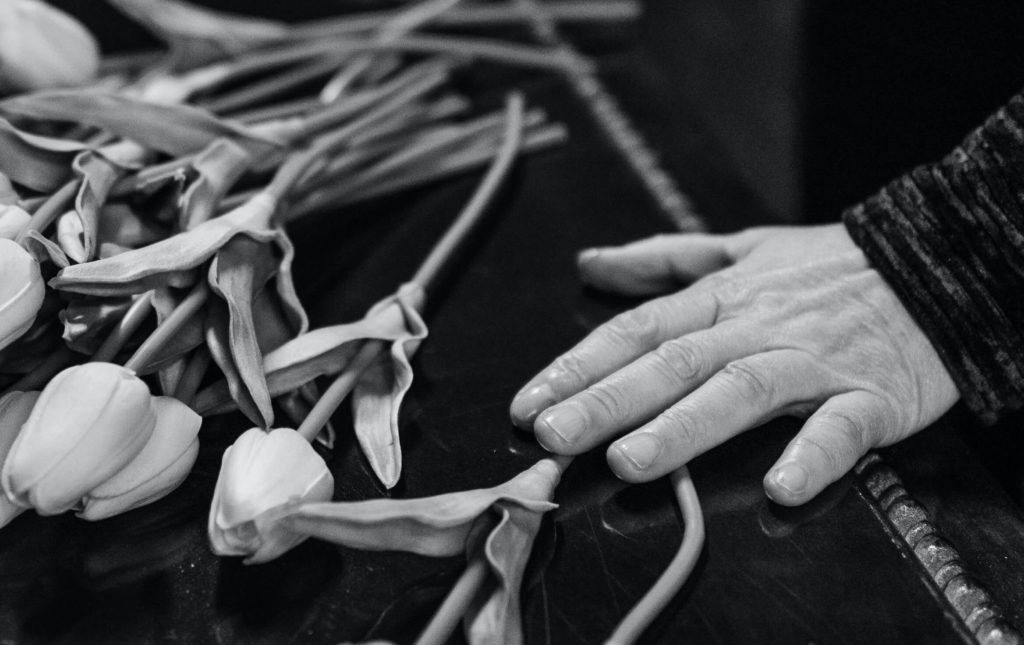Losing a loved one can be one of the most challenging experiences anyone can go through. Whether it’s the death of a parent, child, spouse, or friend, the grieving process can be long and complicated, with a wide range of emotions and experiences. Understanding the stages of grief can help you make sense of the emotions you’re feeling and provide a roadmap for coping. In this blog post, we’ll explore the five stages of grief, what to expect during each stage, and how to cope with the loss of a loved one.
- Denial
The first stage of grief is denial. This is a natural response to loss, and it’s your mind’s way of protecting you from the full weight of the reality of the situation. During this stage, you may find yourself thinking, “This can’t be happening” or “This isn’t real.” You may feel numb or detached from the world around you. You might also find yourself going through the motions of daily life without fully engaging or feeling present.
Denial is a protective mechanism that allows us to slowly absorb the reality of the loss. This stage can last anywhere from a few hours to a few days or weeks, depending on the individual and the circumstances of the loss. It’s important to remember that everyone experiences grief differently, and there’s no “right” or “wrong” way to grieve.
If you’re struggling with denial, it’s important to seek support from friends and family, or consider seeing a therapist or grief counselor. Speaking with a professional can help you process your emotions and move through the stages of grief.
- Anger
The second stage of grief is anger. As the reality of the loss sinks in, you may feel a deep sense of anger or resentment. You may feel angry at the person who died for leaving you, angry at yourself for not being able to prevent the loss, or angry at the world for being unfair. You may find yourself lashing out at those around you, feeling irritable or short-tempered, or experiencing intense feelings of frustration.
Anger is a normal and natural part of the grieving process. It’s important to allow yourself to feel and express your anger, but it’s also important to find healthy ways to cope with it. Exercise, journaling, and speaking with a therapist or grief counselor can all be helpful in managing anger and other difficult emotions.
- Bargaining
The third stage of grief is bargaining. During this stage, you may find yourself trying to negotiate with a higher power or the universe to bring your loved one back. You may make promises or sacrifices in exchange for their return, or you may find yourself obsessing over what you could have done differently to prevent the loss. This stage is often marked by feelings of guilt, regret, or self-blame.
Bargaining is a normal response to grief, but it’s important to remember that there’s no way to turn back time or change what has already happened. It’s important to focus on what you can do in the present to honor your loved one’s memory and find ways to cope with your loss.
- Depression
The fourth stage of grief is depression. During this stage, you may experience intense feelings of sadness, hopelessness, and despair. You may feel like withdrawing from others, losing interest in activities you once enjoyed, or experiencing physical symptoms like insomnia or loss of appetite. You may also feel like you’ll never be able to move on or find happiness again.
Depression is a natural and normal part of the grieving process, but it’s important to seek support if your symptoms persist or worsen. A therapist or grief counselor can help you work through your emotions and provide you with coping strategies to manage your depression. You may also find it helpful to reach out to support groups or online communities where you can connect with others who have experienced similar losses.
It’s important to remember that depression is not a sign of weakness, and seeking help is a sign of strength. Grieving takes time and it’s important to allow yourself the space and support you need to work through it.
- Acceptance
The fifth and final stage of grief is acceptance. During this stage, you begin to come to terms with the reality of the loss and start to find ways to move forward with your life. This doesn’t mean you forget about your loved one or stop feeling sad about the loss, but it does mean you start to find ways to integrate the loss into your life and move forward in a way that honors their memory.
Acceptance is not a fixed point that you reach and never revisit. You may move in and out of acceptance throughout the grieving process, and it’s normal to experience moments of sadness or pain even after accepting the loss. It’s important to remember that grief is a journey, and everyone’s journey is different.
Coping with the Loss of a Loved One
The grieving process can be difficult and overwhelming, but there are things you can do to cope with the loss of a loved one. Here are some tips to help you through this difficult time:
- Take Care of Yourself
It’s important to prioritize your physical and emotional health during the grieving process. This may mean getting enough sleep, eating healthy foods, and getting regular exercise. It’s also important to take care of your emotional health by seeking out support from friends and family, or seeking out the help of a therapist or grief counselor.
- Allow Yourself to Feel Your Emotions
Grief is a natural and normal response to loss, and it’s important to allow yourself to feel your emotions, even if they’re painful or difficult. Allow yourself to cry, express your anger, and feel the sadness. It’s important to remember that there’s no “right” or “wrong” way to grieve, and everyone experiences grief differently.
- Connect with Others
It’s important to lean on your support system during this difficult time. Connect with friends and family members who can offer a listening ear or a shoulder to cry on. Consider joining a grief support group, where you can connect with others who are going through a similar experience.
- Honor Your Loved One
Finding ways to honor your loved one can help you feel connected to them and can provide a sense of comfort during the grieving process. This might include creating a memorial, writing a letter to your loved one, or participating in a favorite activity they enjoyed.
- Take Things One Day at a Time
Grief is a journey, and it’s important to take things one day at a time. Be patient with yourself, and don’t put pressure on yourself to “move on” before you’re ready. Allow yourself the time and space you need to process your emotions and come to terms with your loss.
Llámanos para aprender más
If you’re struggling to cope with the loss of a loved one, know that you’re not alone. Grief is a natural and normal response to loss, and there is support available to help you through this difficult time. At Oregon State Grief Counseling, we offer compassionate and supportive counseling services to help you navigate the grieving process. Call us today to learn more about our services and how we can help.






